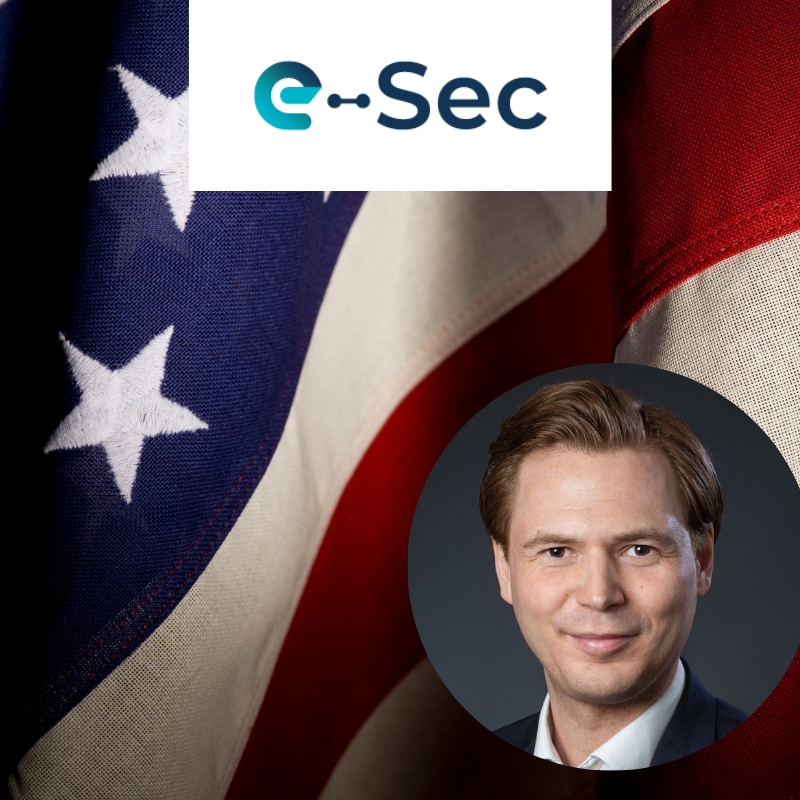
15. January 2025 | Markus Fehn
The benefits of crypto deregulation in the USA
The potential for deregulation of the US crypto market under the Trump administration has sparked significant discussion among market observers. Many anticipate that such changes could foster a more favourable environment for cryptocurrency, driving its adoption and innovation both in the US and globally.
The Trump inauguration for his second administration in the US on 20 January has been met with varied expectations across the globe. In the crypto sector, however, optimism about deregulation is taking centre stage. The key to these expectations lies in the individuals who will shape the legal and regulatory landscape: the newly appointed Attorney General and the incoming head of the US Securities and Exchange Commission (SEC). Both roles, which will be filled by Trump appointees, are critical in determining the trajectory of US crypto regulation. Significantly, the candidates currently under consideration for these positions are known proponents of a pro-crypto agenda.
Crypto Assets as future off-balance sheet items
The incoming administration is likely to address a unique aspect of the US capital market: the requirement for banks to recognise their customers’ crypto assets as liabilities on their balance sheets. This regulation, known as the SAB 121 Accounting Rule, has long been a deterrent for institutions offering crypto services, as it ties up equity and reduces profitability. Under the Trump administration, the repeal of this rule appears highly probable. If repealed, crypto assets held in custody for clients could be treated as off-balance sheet items, aligning them with the accounting practices used for other asset classes. This shift would not only reduce the financial burden on institutions but also create a more level playing field between crypto assets and traditional financial instruments.
The crypto market is expected to see a significant influx of institutional money. To date, institutional investors have approached crypto assets with caution, prioritising a stable, secure and regulatory-compliant environment. However, anticipated changes in the regulatory landscape could mark a turning point. In particular, US retirement plans, including company pension schemes, are likely to open up to alternative investments. This USD 40 billion investment sector has historically been restricted by regulations, preventing most savers from accessing alternative asset classes. The development of a new legal framework is now making such investments more feasible. As a result, a shift toward crypto assets within these institutional portfolios appears increasingly imminent.
Bitcoin as a new strategic reserve
The growing prominence of cryptocurrencies like Bitcoin is already a visible outcome of deregulation efforts. Bitcoin is increasingly being regarded as “digital gold”, a perception bolstered by the policy direction of the incoming US administration. Among the proposals being discussed is the creation of a strategic Bitcoin reserve, akin to the gold reserves famously held in Fort Knox. What might initially sound far-fetched gains credibility upon closer examination. The goal is not to replace gold or traditional assets entirely but to enhance diversification within an investment strategy. This raises an important question: What strategic purpose could a Bitcoin reserve serve for a nation? If such a reserve aligns with strategic objectives, its inclusion in a diversified portfolio should be seriously considered.
Of course, the deregulation of the US crypto market harbours both opportunities and challenges. On the one hand, it allows for greater exploration of crypto’s disruptive potential and accelerates innovation. On the other hand, it increases the risk of market overheating. To mitigate this, it will be crucial for the SEC to establish appropriate safeguards and boundaries. While deregulation opens doors, every market needs a framework of rules to function effectively and sustainably.
Further tensions between the EU and the USA
Whether the United States’ deregulation of crypto markets will trigger a spillover effect into Europe and Germany remains uncertain. With the recently introduced MiCA Regulation governing markets for crypto assets, the EU has established a relatively restrictive regulatory framework. As a result, European financial markets must tread carefully to avoid falling into a lasting competitive disadvantage. If crypto companies face insurmountable legal barriers in Europe, it is highly likely they will relocate their operations to the USA. This would be the exact opposite of what the EU aimed to achieve with MiCA.
The USA’s shift towards openness and equality in crypto regulation also sends a strong signal for the broader acceptance of alternative assets. Deregulation could pave the way for new opportunities in asset tokenisation and the adoption of blockchain technologies. As a provider of crypto infrastructure, we are actively preparing for accelerated market growth in this evolving landscape.